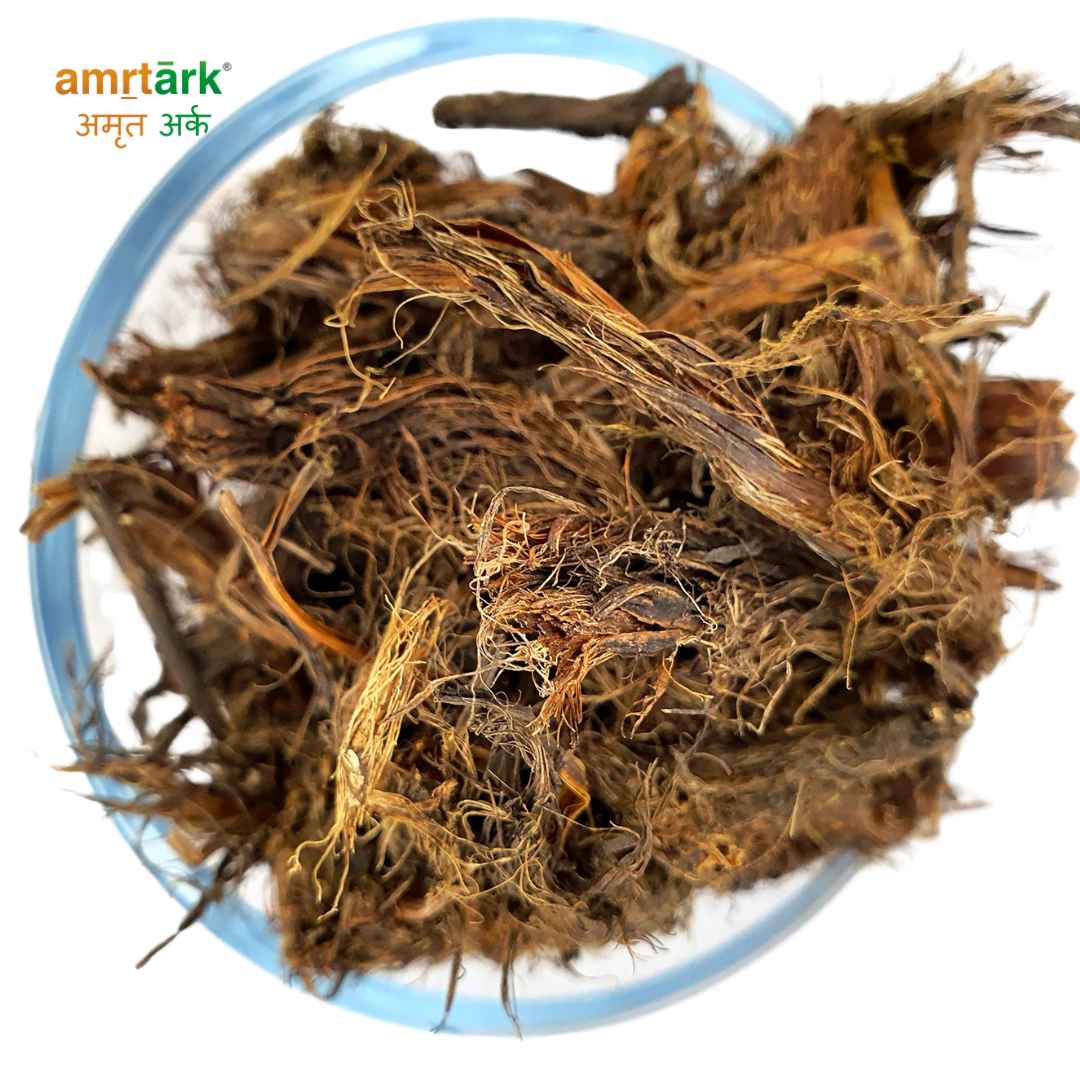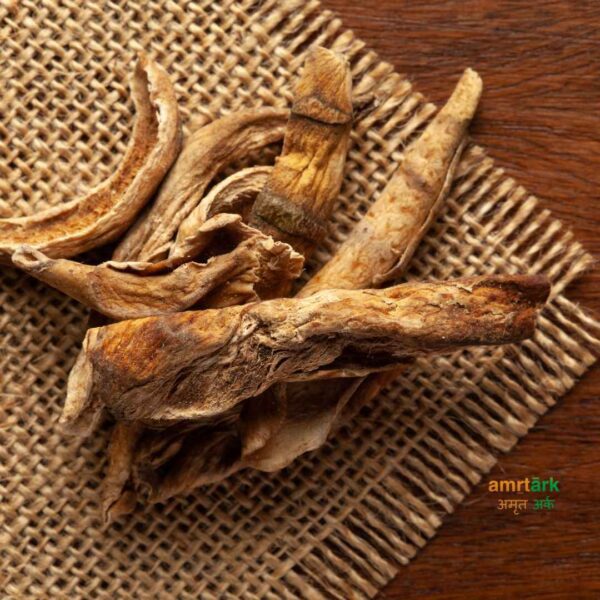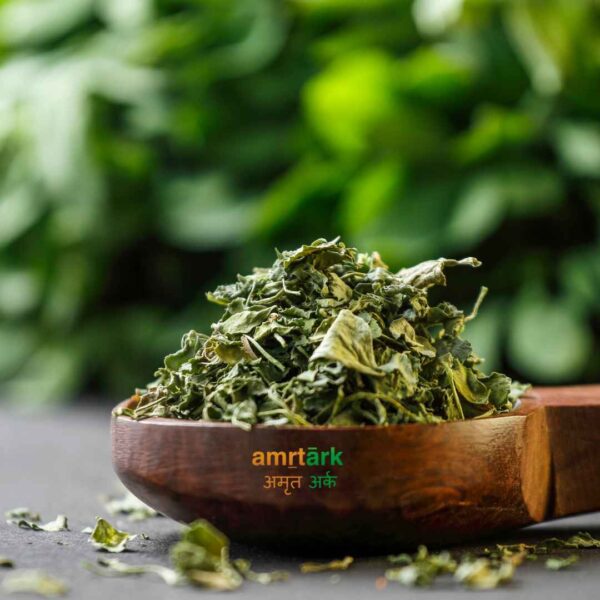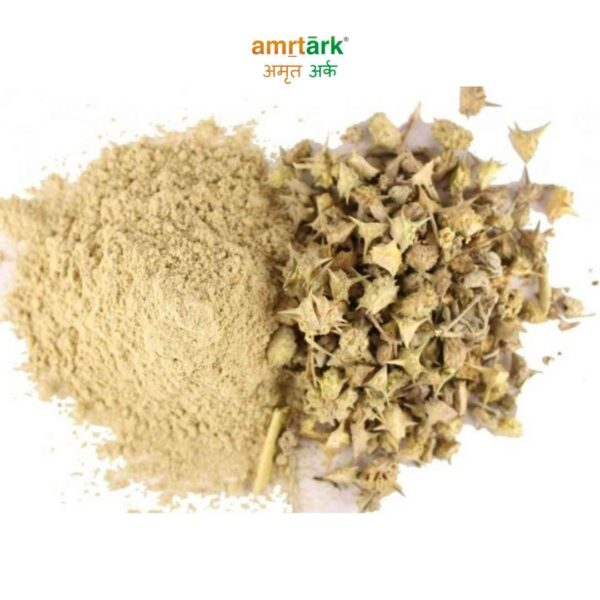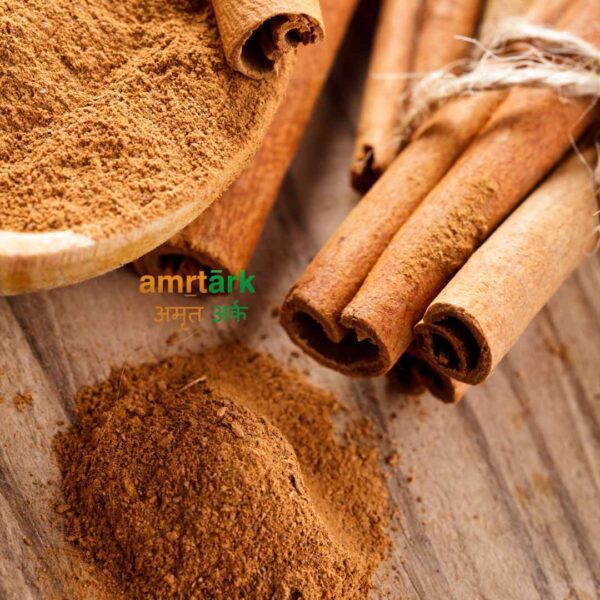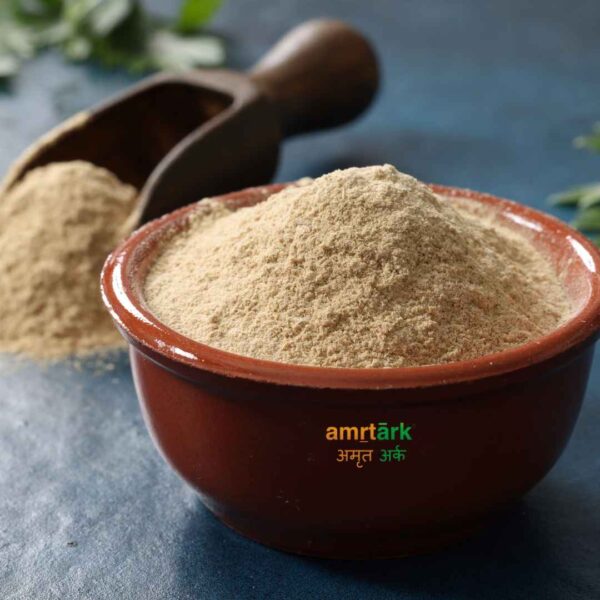Description
Jatamansi (Nardostachys jatamansi) – Monk Root
Jatamansi, known scientifically as Nardostachys jatamansi, is a valuable medicinal herb in traditional Ayurvedic medicine. Commonly referred to as Monk Root, it is recognized for its calming and restorative properties, making it a popular choice for promoting mental health and well-being. Jatamansi is primarily found in the Himalayan regions of India, Nepal, and Bhutan, where it grows at altitudes of 3,000 to 5,000 meters.
Botanical Characteristics
- Common Names: Jatamansi, Nardostachys jatamansi, Spikenard, Monk Root, Wild Nard
- Scientific Name: Nardostachys jatamansi
- Family: Valerianaceae
- Appearance: Jatamansi is a perennial herb with a thick, aromatic rhizome. The plant produces slender stems that can reach a height of up to 30 cm and features feathery leaves and small, bell-shaped flowers that range in color from pale purple to white. The roots and rhizomes have a distinct fragrance, reminiscent of musk.
Active Compounds and Nutrients
Jatamansi contains a variety of bioactive compounds that contribute to its therapeutic properties:
- Essential Oils: Including nardol, which is known for its calming effects and is commonly used in aromatherapy.
- Alkaloids: Such as jatamansone and nardostachone, which have sedative and relaxant properties.
- Flavonoids: These provide antioxidant benefits, combating oxidative stress in the body.
- Saponins: Known for their immune-boosting and anti-inflammatory properties.
- Resins and Tannins: Which contribute to its astringent and anti-inflammatory effects.
Health Benefits of Jatamansi (Nardostachys jatamansi)
- Promotes Mental Clarity and Reduces Stress: Jatamansi is highly regarded for its calming effects on the mind and body. It helps alleviate stress and anxiety by promoting relaxation and mental clarity. The herb is often used in herbal formulations for improving mood and enhancing cognitive function.
- Enhances Sleep Quality: Due to its sedative properties, Jatamansi is an effective natural remedy for insomnia and sleep disturbances. It helps calm the nervous system, making it easier to fall asleep and stay asleep, thus promoting restful and rejuvenating sleep.
- Supports Cognitive Function: Jatamansi is believed to enhance memory and concentration. Its neuroprotective properties help improve cognitive function and may help prevent age-related cognitive decline. It is often included in formulations aimed at boosting brain health.
- Anti-inflammatory Properties: The herb has potent anti-inflammatory effects, making it beneficial for managing conditions like arthritis and other inflammatory disorders. Jatamansi helps reduce inflammation and pain, promoting joint health.
- Balances Hormones: Jatamansi has been traditionally used to regulate hormonal balance, particularly in women. It can help alleviate symptoms of premenstrual syndrome (PMS), menopause, and hormonal imbalances by supporting the endocrine system.
- Promotes Heart Health: The antioxidant properties of Jatamansi help reduce oxidative stress, which is beneficial for cardiovascular health. It may help lower blood pressure and improve overall heart function.
- Supports Digestive Health: Jatamansi can aid in digestion by relieving gastrointestinal issues like bloating, gas, and indigestion. Its soothing properties help calm the digestive tract and promote healthy bowel movements.
- Antimicrobial and Antifungal Properties: Jatamansi exhibits antimicrobial and antifungal activity, making it useful for treating various infections. It has been traditionally used to treat skin conditions and infections.
- Promotes Skin Health: The astringent properties of Jatamansi make it beneficial for skin health. It can help improve skin texture, reduce acne, and promote a healthy complexion when used in topical applications.
- Enhances Hair Health: Jatamansi is often used in hair care products for its ability to promote hair growth and prevent hair loss. It helps nourish the scalp, strengthen hair follicles, and enhance overall hair health.
Traditional and Ayurvedic Uses
In Ayurveda, Jatamansi is considered a powerful herb for promoting mental clarity, emotional well-being, and overall vitality. It is classified as a Rasayana herb, meaning it rejuvenates and enhances longevity. Jatamansi is commonly used for:
- Stress relief and anxiety management: It is included in formulations for calming the mind and promoting relaxation.
- Cognitive enhancement: Jatamansi is often used to improve memory and concentration.
- Hormonal balance: It is recommended for regulating menstrual cycles and alleviating symptoms of PMS and menopause.
Modern Uses and Forms
Jatamansi is available in various commercial forms, including:
- Jatamansi Powder: The dried rhizome is ground into a fine powder for use in herbal teas, supplements, or culinary applications.
- Jatamansi Capsules/Tablets: Standardized extracts are taken as supplements to support mental health and relaxation.
- Jatamansi Oil: Extracted from the rhizome, this essential oil is used in aromatherapy and skincare products for its calming and nourishing properties.
- Herbal Formulations: Jatamansi is often combined with other herbs like Ashwagandha or Brahmi to enhance its effects on mental clarity and relaxation.
Recommended Dosage
The recommended dosage of Jatamansi varies depending on the form and intended use:
- For mental clarity and relaxation: 500-1000 mg of Jatamansi extract per day.
- For sleep support: 1-2 teaspoons of Jatamansi powder mixed with warm milk or water before bedtime.
- For digestive health: 1 teaspoon of Jatamansi powder can be taken after meals.
It is advisable to consult a healthcare provider for personalized dosage recommendations, especially for individuals with medical conditions or those who are pregnant.
Side Effects and Precautions
Jatamansi is generally safe when taken in recommended doses. However, some individuals may experience mild side effects, such as gastrointestinal discomfort or drowsiness. Pregnant and breastfeeding women should consult a healthcare provider before using Jatamansi. Those on medications for anxiety or sleep disorders should also seek medical advice, as Jatamansi may interact with these medications.
Jatamansi (Nardostachys jatamansi), or Monk Root, is a highly regarded herb in traditional medicine, known for its calming, restorative, and health-promoting properties. Its ability to enhance mental clarity, promote restful sleep, support hormonal balance, and improve overall well-being makes it a valuable natural remedy. Whether used as a dietary supplement, in herbal teas, or in skincare products, Jatamansi offers a wide range of health benefits for both mind and body.


